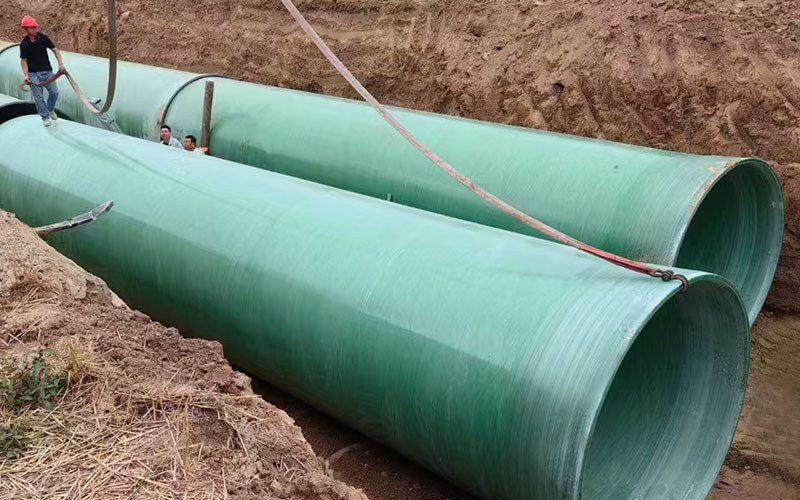Glass reinforced plastic (GRP) pipes are gaining recognition as a sustainable solution for water management systems due to their corrosion resistance, ease of installation, and customizability. The following are the key factors that make GRP pipes a sustainable choice for industry and municipalities:

1. Corrosion Resistance for Long-Term Durability
GRP pipes are inherently resistant to corrosion, making them ideal for water management systems exposed to harsh environments, including wastewater, seawater, and chemicals. Unlike traditional materials like steel or concrete, GRP pipes do not rust or degrade over time, even with prolonged exposure to water. This durability translates to a longer lifespan of up to 50 years or more, reducing the need for frequent replacements and minimizing waste.
2. Lightweight and Energy-Efficient
The lightweight nature of GRP pipes provides significant advantages in terms of transportation, installation, and energy use. They are easier to transport compared to heavier materials like steel or concrete, requiring less fuel and reducing the carbon footprint associated with logistics. Additionally, the energy required for installation is lower due to their lightweight design, further contributing to energy savings.
3. Reduced Maintenance and Operational Costs
The low-maintenance nature of GRP pipes leads to fewer repairs and replacements over time. This means fewer resources are needed for maintenance work, including energy, materials, and labor. GRP’s resistance to chemical corrosion also means fewer harmful coatings or treatments are necessary, reducing the environmental impact.
4. Energy Efficiency in Water Flow
The smooth inner surface of GRP pipes ensures minimal friction losses, leading to more efficient water flow. This helps reduce the energy required for pumping and water conveyance in water management systems, thus lowering operational energy consumption. By improving energy efficiency, GRP pipes reduce the carbon footprint of water systems over their lifetime.
5. Reduced Leakage and Water Waste
GRP pipes are designed to be resistant to leaks and cracks, which is a common problem with older water infrastructure systems. By reducing water loss through leaks, GRP pipes help conserve valuable water resources and support sustainable water management practices. This is particularly important in areas facing water scarcity or droughts, where efficient water use is critical.
BOANG composite material manufacturers can customize and produce GRP pipes of various specifications and uses according to your requirements. GRP pipes provide a sustainable and lasting solution for water management systems. Their corrosion resistance, lightweight design, energy saving and recyclability make them an environmentally friendly choice.